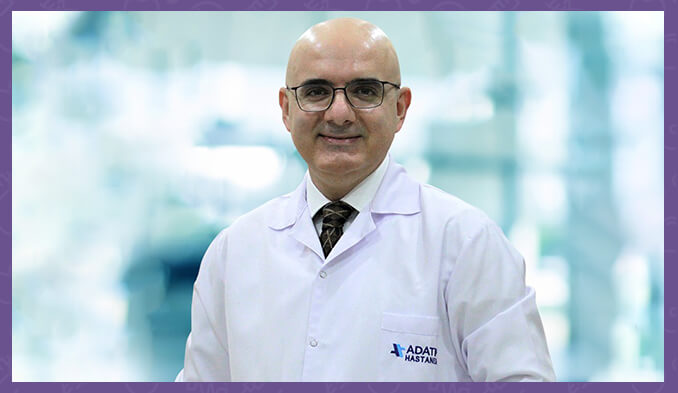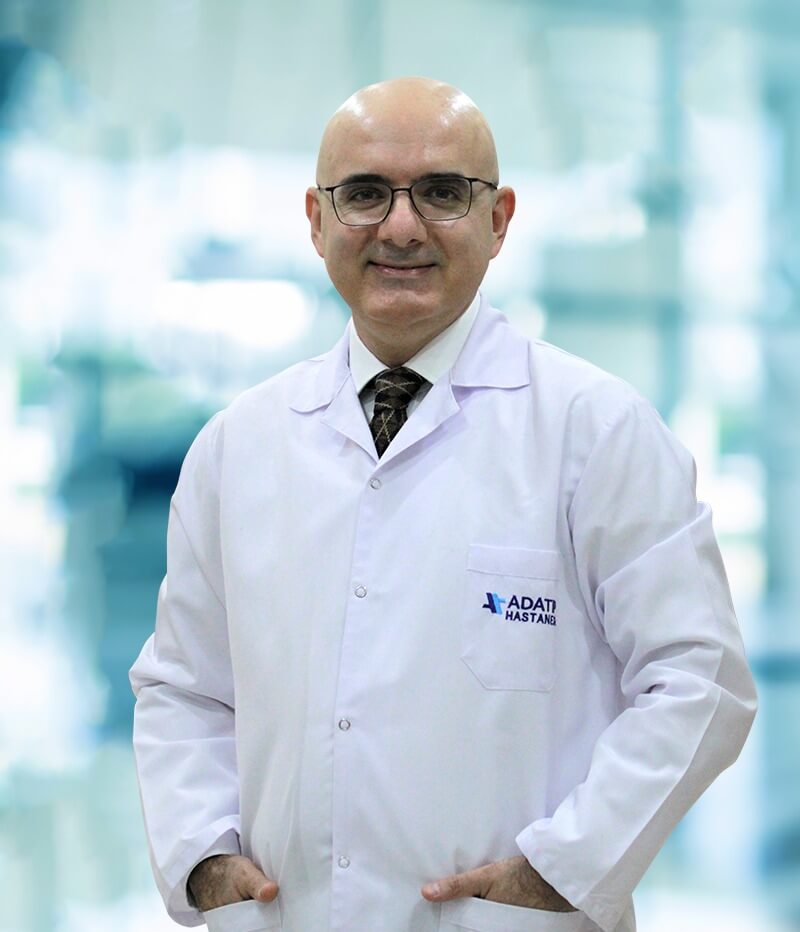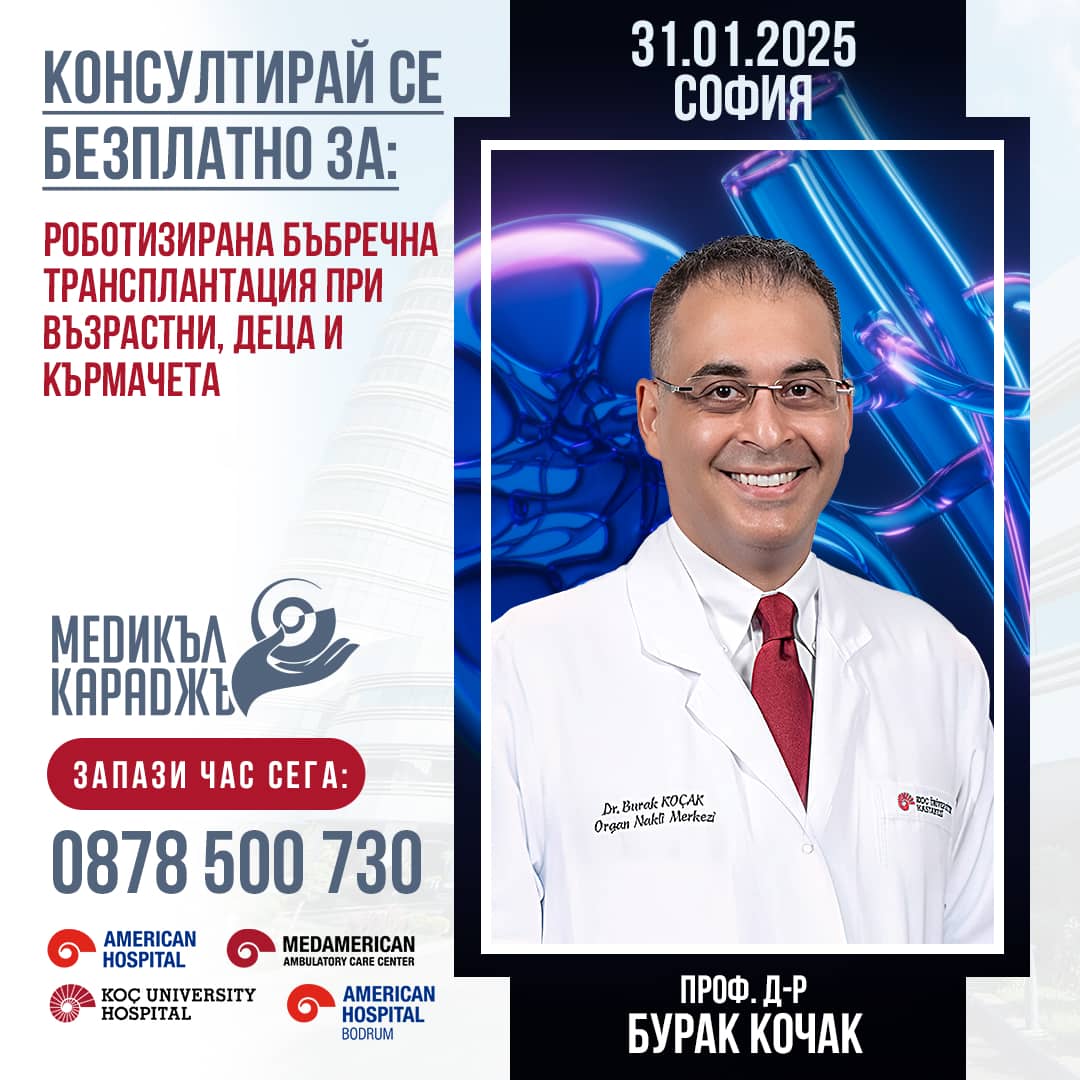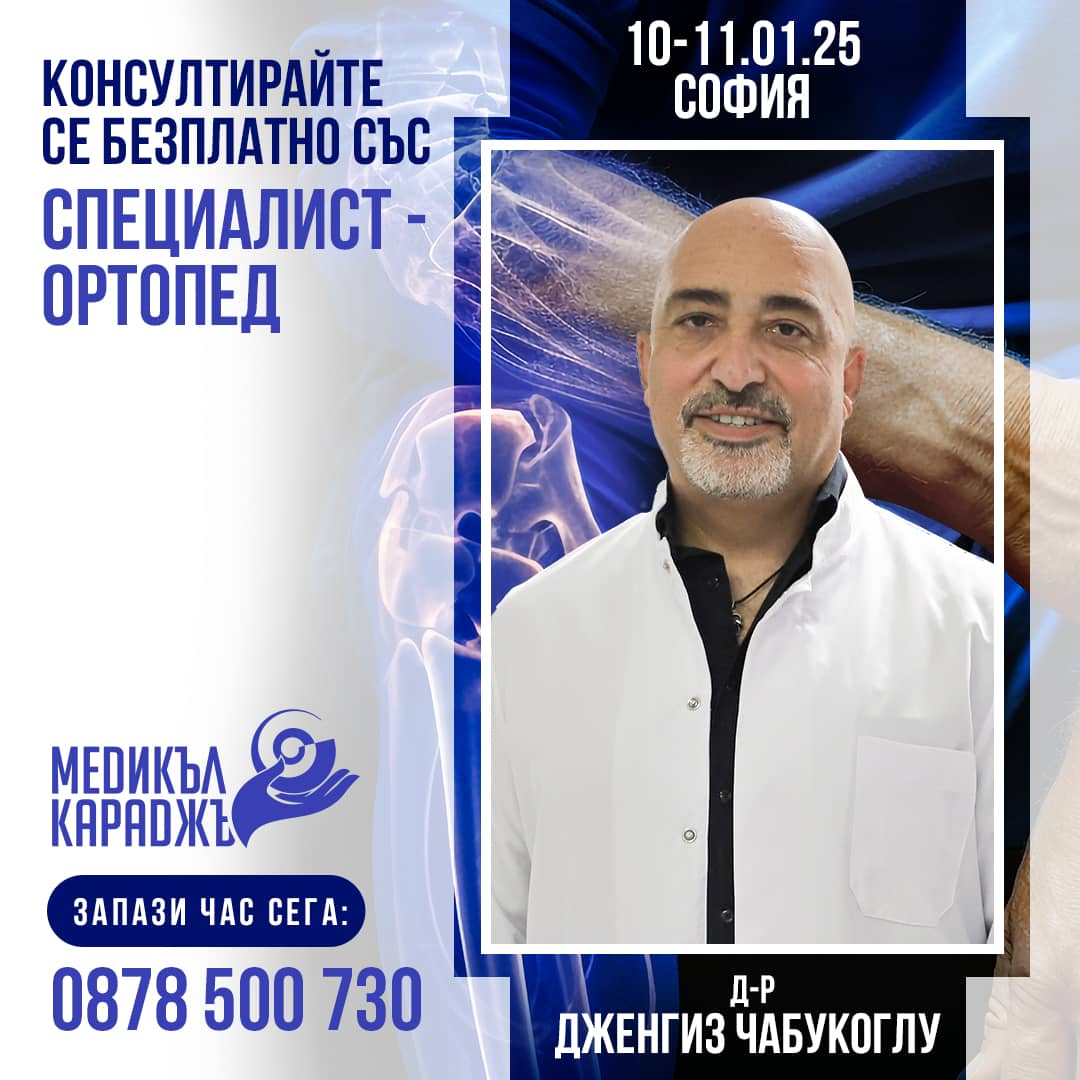Surgery cures Type 2 Diabetes
On December 17 and 18, 2021 in Sofia, the Health Information Center "Medical Karaj" is pleased to welcome for the first time the experienced specialist Prof. Dr. Hussein Sinan from Adatip Hospital, Istanbul.
All patients with obesity, type 2 diabetes and metabolic disorders from Sofia and the region will have the opportunity to consult the leading specialist from Turkey for FREE on 17 and 18 December 2021. He will be visiting at the invitation of the manager of ZIC "Medical Karaj"- Zvezdelina Lutfi and within the framework of the initiative of the Health Information Center to provide access to the most innovative and modern technologies in medicine.
Who is Prof. Dr. Hussein Sinan?
Prof. Dr. Hussain Sinan was born in 1971 in Besni district of Adiyaman. He entered the Faculty of Military Medicine of Gülhane Military Medical Academy in 1990 and graduated as a medical lieutenant in 1996. After his compulsory service in Şırnak, he specialized in general surgery at Istanbul GATA Haydarpaşa Training Hospital between 1999 and 2003. He worked as a visiting scholar and research fellow for 1 year in "Advanced Laparoscopic Surgery" at the University of Washington Center for Videoendoscopic Surgery in Seattle, USA. Dr. Hussain Sinan was awarded the rank of Associate Professor of General Surgery in 2014 and the title of Professor in 2019. He is married, has a child and is fluent in English.
Professional Experience:
- 2003-2008 - General Surgery Specialist, Samsun Military Hospital, Istanbul
- 2011-2015 - Specialist in Emergency Medicine and General Surgery, Ankara Military Hospital, Istanbul
- 2016-2021 - Professor of General Surgery, Florence Nightingale Hospital, Istanbul
- 2021 to date - Professor of General Surgery, Adatip Hospital, Istanbul
Prof. Dr. Hussain Sinan's main clinical areas of interest include:
- Bariatric Surgery
- Metabolic surgery (surgical treatment for type 2 diabetes)
- Laparoscopic surgery
In his practice, Prof. Dr. Hussain Sinan uses ileal interposition and transit bipartition for the surgical treatment of type 2 diabetes.
What is ileal interposition?
The goal in performing this surgery is to reduce insulin resistance and increase sensitivity in patients with type 2 diabetes. To achieve this, the distal part of the small intestine must be brought to the stomach outlet or a gap opened in the upper part of the small intestine and the terminal part brought to this opening.
The distal part of the small intestine is brought to the exit of the stomach, after removing the part of the stomach where the hunger hormone is secreted. The reason for removing this part of the stomach is to reduce the feeling of hunger after surgery and to reduce the nausea and vomiting that may occur. The reduction of the stomach in this operation is never as great as the reduction of the stomach done in operations for obesity.
This operation provides the following; food will pass directly into the distal part of the small intestine and hormones (GLP-1, Oxyntomodulin, Polypeptide YY, etc.) will be secreted that will increase insulin sensitivity. In other words, some hormones (GIP, glucagon, etc.) normally secreted by the upper small intestine will not be secreted and insulin resistance will decrease. The condition , in which insulin is produced in the body but cannot be used, will disappear and the patient will not be dependent on the insulin he takes externally and may even stop taking diabetes medication.
What is Transit Bipartition?
This type of surgery, which was introduced into the medical literature by Sergio Santoro, is beginning to be successfully applied to both obesity and type 2 diabetes.
In the operation, approximately half of the stomach is removed longitudinally, cut approximately 300 cm from the junction of the small intestine with the large intestine and joined to the stomach. The excised intestinal sections are then reassembled together. This makes two new connections. The first is between the stomach and the intestine and the second is between the small intestine.
In this operation, approximately 2/3 of the food entering the stomach continues through the newly made gastric band and approximately 1/3 continues through the old gastric tract. The goal here is to reduce the absorption of the ingested food and ensure the secretion of hormones that will activate the insulin that the person produces but cannot use, ensuring that the food comes into contact with the small intestine as soon as possible.
After this surgery, patients lose weight and their diabetes regresses. If people continue their diet and exercise program after surgery, it is possible to reduce or even completely abandon diabetes-related medications.
For consultation with Prof. Dr. Hussain Sinan it is necessary to provide the following examinations:
- Glucose, Insulin, Estimated mean glucose, IFCC-A1C, Hemoglobin A1C (HBA1C) %, Insulin (fasting), Insulin (1 hour after meal), C-peptide (fasting), C-peptide (1 hour after meal), Blood glucose after meal, HOMA-IR beta, HOMA-IR SHOMA-IR
Important:
- Blood tests should be given in the morning from 9:30 to 10:00.
- The patient should not take food from 24:00 in the evening before the examinations.
Those wishing to take advantage of the opportunity for a free consultation with Prof. Dr. Hussein Sinan on 17 and 18 December 2021 in Sofia, should book an appointment in advance at:
- the telephone numbers of ZIC "Medical Karaj"- 0879 977 402 or 0878 500 940
- to request their desired appointment online at: https://www.medikara.bg/
Patients will have to provide on the spot the medical records and imaging tests that have been done so far.
Please note that no physical examinations will be performed during the consultation. Free consultations are based on the medical records currently available to the patient.









